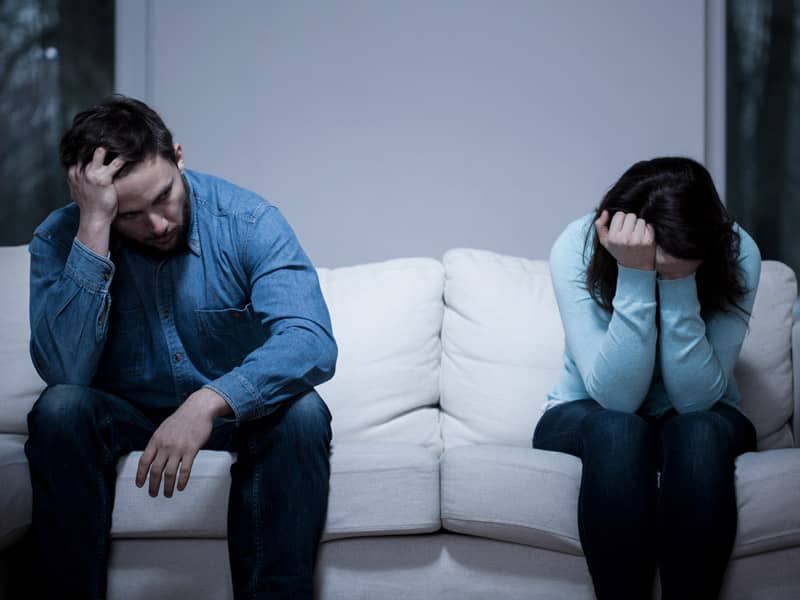The circumstances of sudden, violent death thrust survivors without warning, and often without any direction or adequate support, into a pool of torment where emotions batter and rage without mercy. At the same time, you are often required to deal with unfamiliar responsibilities, unrealistic demands, and painful intrusions (from the judicial system, the media, the medical world) that result from the violent death. All of this creates a high level of personal chaos and confusion.
Especially in the first year following your loved one's death, both the emotional punishment and the chaotic disorder may expand and intensify until they seem to be almost beyond human endurance. Once you get past the mind-saving numbness of the initial shock, mental pictures of the death may cause a nearly constant torture. Often you must cope with agonizing factual details as well as your own imaginings. And imagining the final moments can be an ongoing torment.
When you undergo such experiences, you are set apart, more than other survivors, from the world as you formerly knew and understood it. Your surroundings, and your circumstances--which, most likely, have undergone dramatic changes as a result of the death--may seem fragmented and unreal. Environments that once seemed safe can be threatening. People who once seemed only eccentric or marginally dysfunctional can seem intolerable, even dangerous. The world is perceived as something that should be protected against, rather than lived in.
It is natural under such circumstances to try to make sense of things, to grasp at something that will provide order. One of the most common ways many survivors seek to do this is by assuming guilt--to some degree or another--for their loved one's death. Their thinking goes, "If only I had said something, or done something, or recognized something, then this terrible loss would not have happened." In other words, "I had the power to prevent my loved one's death and I did not do it."
Except in the rarest of circumstances, the opposite is true. We do not have such power. Regardless of what we would like to believe, the world is unpredictable and chaotic and there is no direct line of cause and effect that leads from us to our loved one's death. There is not even an indirect line. Instead, an abundance of factors influence any person's course every single minute. Each of our lives is endlessly shaped and reshaped by interactions of environment, disposition, personal characteristics, cultural expectations, chance events, and a host of other random factors.
Even though assuming responsibility for such a tragedy would give order to that which is disorderly and excruciating--surviving a violent death--it is completely unreasonable for you to try to take on that burden. Anything can happen at any time to anyone. No matter how loving or wise or careful we are, we cannot change the unexpected nature of death.
Once the worst shock and torture of a loss have subsided, many survivors of murder and accident victims find it empowering to take some action, however small, to seek retribution or to make a change that will reduce the possibility of another person enduring circumstances similar to theirs. If you would like to consider taking such a course yourself, first identify an aspect of the death and its aftermath that can be subject to outside influence. Then your effort may take any form--starting a group to help other victims, requesting campus escorts for women at your daughter's college, lobbying for a change in a law, petitioning for improvements that would make your neighborhood safer, contributing time or money to anti-gun forces, speaking in local schools or organizations about the tragedies and consequences that result from violent or reckless behavior, writing opinion pieces for publication on the internet or in newspapers.
There are as many ways to put your grief into action as there are violent actions. The parents of an accident victim killed in an explosion put it this way, "As survivors, we had no control over what happened to cause us such grief, but we do have control over what we can do about it. We can take action to prevent its happening to others." Such survivors use their own experience to transform or diffuse a potential tragedy, and from that they gain strength.
Support groups whose members have sustained the same type of loss as yours can also provide vital sustenance. Joining a circle of survivors who are supportive friends can be, in the roughest of times, a temporary retreat to a safe haven. Survivors of deaths by suicide and homicide, in particular, offer one another a brand of understanding that cannot be gained elsewhere. Receiving and giving acceptance linked with compassion can diminish the punishment and chaos you are experiencing and, in so doing, make the resolving phase of your grief much less lonely and painful.

Carol Staudacher is an author and grief educator whose regular column for Beliefnet focuses on the adult grieving process. Her books include "Men and Grief" and "Beyond Grief: A Guide for Recovering From the Death of a Loved One."

